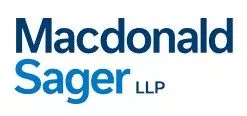Condominium owners and residents have an obligation to comply with their governing Rules and Regulations, By-laws and Declaration. If an owner or resident breaches any of the governing documents, and the condominium corporation is required to incur costs to enforce compliance, then most Declarations require that the owner indemnify (or "reimburse") the Corporation for the costs that it has incurred.
The rationale for this indemnification is sound. If one owner in a condominium building is not complying with the governing documents, then it is not equitable for the other owners to have to contribute to the enforcement costs.
The challenge for condominium Boards, lawyers and property management is that a "breach" of the governing documents is not always so clear. If an owner has been living for a year with a dog in a "non-pet" building, and has tried to conceal the animal from property management, then the breach of the governing documents would be clear and unambiguous. This owner should be responsible for fully indemnifying the condominium corporation's enforcement costs.
Not every scenario, however, is so clear and unambiguous. Consider the scenario of a group of owners delivering information to the rest of the condominium building regarding the conduct of the Board. Regardless of whether the information is accurate or not, condominium Boards typically get very angry and defensive when this happens. Often times the Board in question will immediately instruct their lawyer to send a letter demanding that the communication cease and that the owner(s) indemnify the condominium corporation. If the Board (and its lawyers) have clear evidence of slanderous statements, then an indemnity of costs may be appropriate. However, if the group of owners can prove that each and every statement is true and accurate, the "chargeback" of legal costs will almost certainly be challenged by the owners, and this could lead to a separate dispute.
As owners continue to breach their governing documents, all of the relevant stakeholders (lawyers, condominium Boards, property management) need to be careful when relying on indemnification clauses, and always look at the remedy as a potential double-edged sword.
About Mackrell International - Canada - MacDonald Sager Manis LLP is a full service business law firm in Toronto, Ontario and a member of Mackrell International. Mackrell International - Canada is comprised of four independent law firms in Alberta, British Columbia, Ontario and Quebec. Each firm is regionally based and well-connected in our communities, an advantage shared with our clients. With close relations amongst our Canadian member firms, we are committed to working with clients who have legal needs in multiple jurisdictions within Canada.
This article is intended to be an overview and is for informational purposes only.


